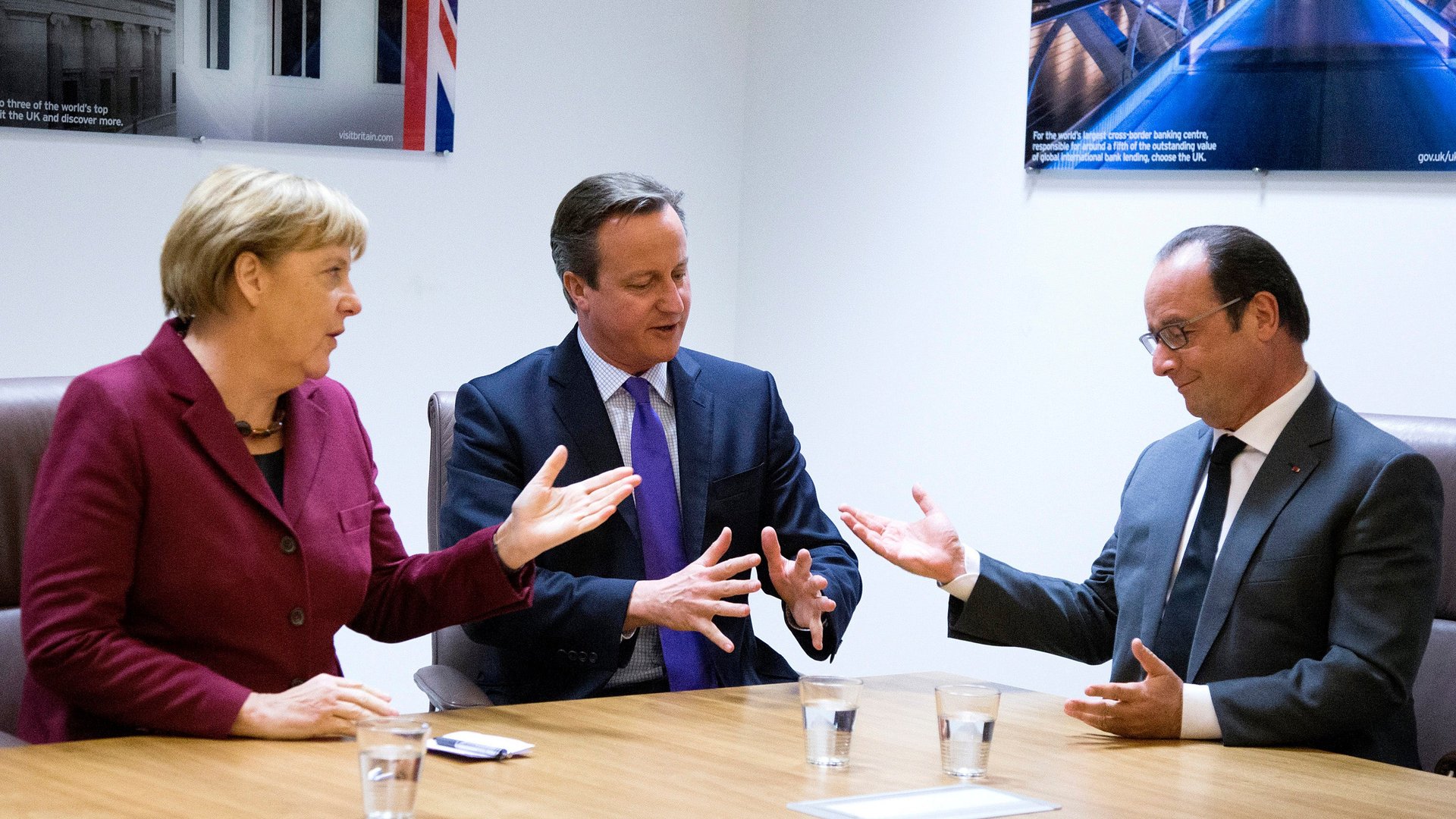What the US can learn from Europe in the fight against ISIL
If there is anything remotely positive that came out of the worst terrorist attack in France’s modern day history, it is Europe’s newfound willingness to come together in the face of a jihadist threat. Western Europe has come together in both words of condolence and in mobilizing militaries during a time of budget-crunching. Its response has been nothing short of inspiring—and it puts the United States to shame.


If there is anything remotely positive that came out of the worst terrorist attack in France’s modern day history, it is Europe’s newfound willingness to come together in the face of a jihadist threat. Western Europe has come together in both words of condolence and in mobilizing militaries during a time of budget-crunching. Its response has been nothing short of inspiring—and it puts the United States to shame.
When compared to parliaments in Europe, Canada, and Turkey, US lawmakers in the House of Representatives and the Senate appear aloof and detached from international efforts to defeat the Islamic State. Despite the fact that the US serves as the backbone and foundation of the counter-ISIL coalition, conducting 70% of the airstrikes in Iraq and 95% of the attacks in Syria, Congress has yet to perform its constitutional duty to debate and pass an authorization for the use of military force.
By contrast, for the first time in its history, the European Union has enacted an emergency clause embedded in the Lisbon Treaty that requires members to come to the assistance of France. The parliaments of several European states, from Germany and Britain to France and Belgium, have expressly approved the deployment of jet fighters and trainers into the theater.
British Prime Minister David Cameron has gone a step further, arguing that expanding United Kingdom airstrikes on the Islamic State in Syria is in the national security interests of the British people—particularly in order to avert a similar catastrophic attack in London. With the House of Commons having passed the government’s motion after a raucous 10-hour debate, British aircraft are now in the skies over Syria, bombing ISIL oil installations in order to hurt the organization’s financial infrastructure.
Even Germany, one of the most pacifist nations in Europe, has decided that it needs to become an integral part of the counter-ISIL coalition in Syria. In addition to providing arms and ammunition to the Peshmerga, German Chancellor Angela Merkel has authorized the deployment of Tornado aircraft in Syria for reconnaissance, intelligence, and refueling missions and a contingent of 1,200 troops to support the new deployment. The Bundestag, the German parliament’s lower house, overwhelmingly approved this measure on Dec. 4.
The Bundestag’s swift vote on the matter is just the latest example of a wave of parliaments doing their due diligence—debating motions, asking questions of government and military officials, and voting in favor of military involvement. The leaders of Canada, France, Britain, Belgium, and Denmark have all formally asked their parliaments to authorize the use of military personnel, frigates, and aircraft before beginning their contributions to the coalition. In some cases, the French, British, and Canadian governments have gone back to their parliaments to either extend or expand the mission. Even the Turkish parliament has formally permitted Turkish military involvement.
On the other side of the Atlantic, however, the US Congress doesn’t appear to have the same sense of urgency.
The lack of political courage and seriousness from the American people’s elected representatives could not be more glaring when compared to the dedication and bravery of America’s soldiers and pilots in Iraq and Syria. No floor debate has been held, no committee votes have been scheduled, and no discussions among the Republican and Democratic leadership have occurred in an attempt to bring a new war resolution to the calendar. And with the exception of a successful vote in the Senate Foreign Relations Committee at the end of 2014, absolutely nothing has been done to give the US president the statutory authority necessary under US law for military action to commence.
In the administration’s legal view, military action against ISIL is simply an extension of Washington’s fight against Al-Qaeda, which is covered under the September 2001 force resolution. And yet the White House has acknowledged that a fresh authorization tailored specifically to counter-ISIL operations would be helpful.
Not only would this put the war on a more solid legal footing, it would bring the entire country together by forcing Congress to debate the war on its merits. Thus far, US lawmakers have largely acted as armchair generals on cable television and radio, carping from the sidelines over President Obama’s strategy and interpretation of the word “terrorism.” It would be another matter entirely for them to propose alternatives on the floor of the House or Senate and take a challenging vote.
The Europeans could be doing a lot more in the air and on the ground—but at least they have created the bipartisan, domestic political support required to sustain such a war. The US Congress still hasn’t done that work—sixteen months into a conflict that will still be around when the next administration comes to town.
During the very beginning of the Iraq troop surge in January 2007, then-Senator Chuck Hagel asked his colleagues on the Senate Foreign Relations Committee a simple question: “What do you believe? What are you willing to support? What do you think? Why were you elected? If you wanted a safe job, go sell shoes.”
Those same words should be directed at the US Congress today.